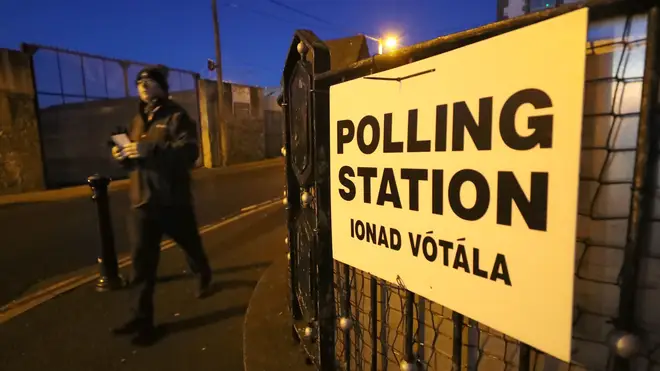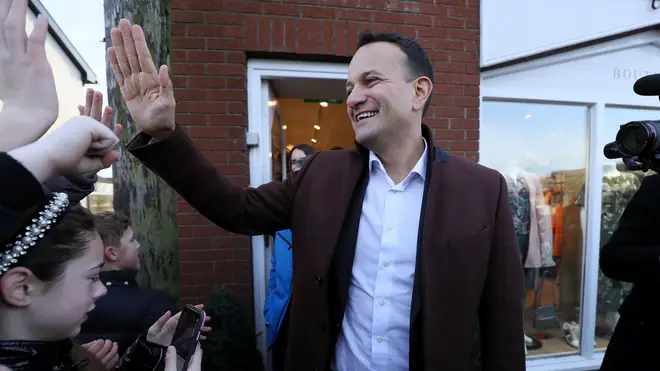
Ian Payne 4am - 7am
8 February 2020, 17:20

The polls have opened in Ireland for what could be one of the country’s most unpredictable elections in years.
It is Ireland’s first Saturday General Election for more than 100 years, but Storm Ciara threatens to dampen turnout.
Opinion polls suggest Sinn Fein is on course to challenge the 90 year duopoly of the state's two main parties, Fianna Fail and Fine Gael.
Taoiseach and Fine Gael leader Leo Varadkar is facing a hard battle to hang on to power, with recent polls putting his party in third place.
In the last major survey before polling day, Sinn Fein was leading the popularity stakes on 25 per cent, with Fianna Fail second on 23 per cent and Mr Varadkar's party on 20 per cent.

Sinn Fein’s polling performance has far surpassed the expectations of party strategists who, coming off the back of several disappointing elections, only fielded 42 candidates in the race for the Dail parliament's 160 seats.
No party is expected to reach the 80-seat threshold to enable it to govern on its own, with a coalition is almost inevitable.
But Sinn Fein is in a slightly different position to its two main rivals, as it may be unable to find enough like-minded left-leaning allies to form a workable government.
Fianna Fail and Fine Gael, both centre-right in outlook, have unequivocally ruled out any partnership with Sinn Fein, and for either to change position would represent a major U-turn.
If it is unable to strike an alliance with either of the other two main parties, Sinn Fein would be unlikely to secure a place in the next government.
Fianna Fail topped the opinion polls early in the campaign, and leader Micheal Martin could yet emerge as Ireland's next taoiseach.
Mr Varadkar, meanwhile, will be hoping his administration's economic record and handling of the Brexit process will convince enough voters to renew his tenure in Government Buildings in Dublin.
Brexit did not feature prominently in a campaign that was instead dominated by domestic issues such as spiralling rental prices, record-breaking homeless numbers, controversy over the state pension age and a struggling health service.